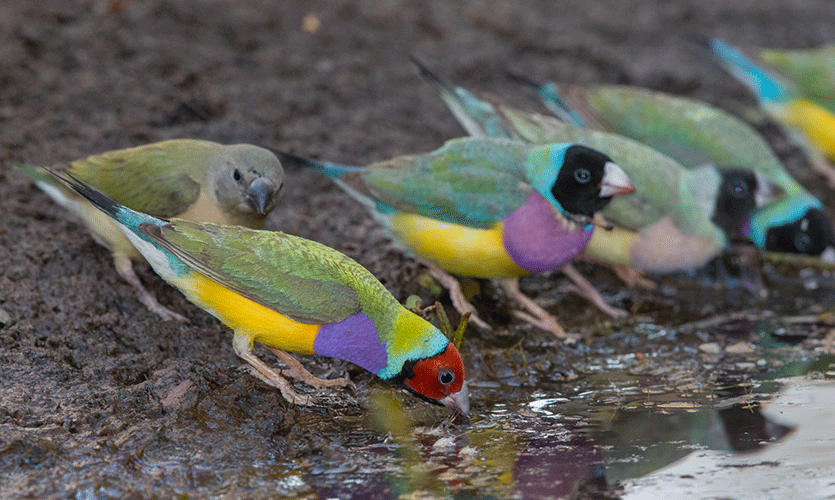Gouldian finches black-headed females taking the lead when faced with possible danger

Endangered species like the Gouldian finch struggle in adapting to ever increasing habitat change, but black-headed females are leading the way in their survival.
It is already know that the Gouldian finch signals its personality with its head colour, and are unusual in the fact that they have red and black heads in the same population, as most bird species occur in only one plumage.
But now research by LJMU scientists, accepted in PLOS ONE, proves that the birds are mitigating risk from potential predators using the least conspicuous head colours and other less colourful bird species.
Scientists have observed that in a possible predator situation like a waterhole, the least conspicuous colour group (black-headed females) descends first. The researchers then witnessed that younger birds only descended after all the adults.
Dr Claudia Mettke-Hofmann, a Reader in Animal Behaviour at LJMU, led the research. She explains:
“The current study investigated the link between head colour and behavioural traits in a naturally risky situation in the wild by recording the order of descent at waterholes.
“From this it seems there are two mechanisms at work a) experience determines which age group goes first and b) conspicuousness determines who goes first among the adults.
“Black-headed females would then generally descend before males of either head colour (black or red) and red-headed females as they were the least conspicuous adults.
“We found that Gouldian finches also protected themselves by almost always following other species, particularly Long-tailed finches, to the ground rather than taking the lead.”
The research was carried out by Dr Claudia Mettke-Hofmann and Dr Andrias O'Reilly from the LJMU School of Natural Sciences and Psychology.


